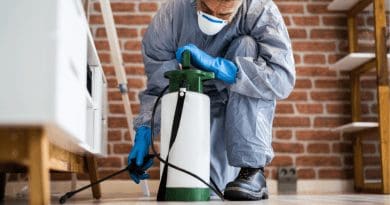Who Is Responsible For Pest Control? Landlord Or Tenant?
In rental properties, the responsibility of pest control can sometimes be a grey area resulting in undue arguments and discord. Who is responsible for pest control, the landlord or the tenant? Here is some helpful information to assist you in understanding this aspect of being a tenant or a landlord.
Who is responsible for pest control in rented property can be a bit of a grey area. There are many reasons and ways pests can enter a property. Sometimes it’s difficult, even impossible, to determine when and how an infestation began.
Landlord Responsibilities
According to the Residential Tenancies Act 2010, landlords in New South Wales have a legal obligation to provide and maintain rental properties in a reasonable state of cleanliness and to ensure the property is fit for habitation. This means landlords are responsible for ensuring the property is free from pest infestations when the tenant moves in.
Also, landlords must ensure that any necessary pest control measures are carried out promptly. If the landlord fails to provide adequate pest control, the tenant can issue a breach notice and seek legal action.
Tenant Responsibilities
While landlords are responsible for ensuring the property is free from pests before the tenant moves in, tenants are also responsible for maintaining a pest-free living environment during their tenancy. This includes keeping the property clean, disposing of rubbish appropriately, and reporting any signs of pest infestations to the landlord as soon as they occur.
If the tenant’s actions or negligence lead to a pest infestation, they are responsible for covering the pest control cost. This can include any professional extermination services and any repairs or replacements needed to prevent further infestations.
Shared Responsibility
In some cases, determining who is responsible for pest control can be challenging. When the pest infestation results from a shared responsibility, the landlord and tenant may need to work together to resolve the issue.
For example, if the property has a shared garden, the landlord and tenant are responsible for ensuring the garden is well-maintained to prevent pest infestations. In such cases, the landlord and tenant may need to split the cost of pest control services.
Communication is Key
In any case, communication is essential regarding pest control responsibilities. Landlords and tenants should proactively address potential pest problems to avoid infestations. According to Pest Control Sydney, regular inspections, thorough cleaning, and prompt reporting of any signs of pests can help prevent infestations and ensure that both parties are fulfilling their responsibilities.
The Points That Matter
In closing, the responsibility of pest control in rental properties is shared between landlords and tenants. While landlords are responsible for ensuring the property is free from pests before the tenant moves in, tenants must maintain a pest-free living environment during their tenancy. In cases where pest infestations result from a shared responsibility, the landlord and tenant may need to work together to resolve the issue.
Clear communication between landlords and tenants is crucial for effective pest control. By working together, both parties can ensure the property is well-maintained and free from pests, creating a healthy and safe living environment for all. For pest control, look for proven professionals that provide comprehensive services.


